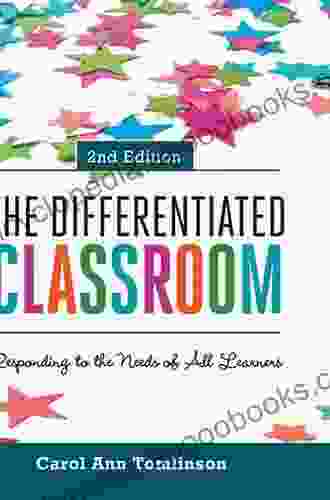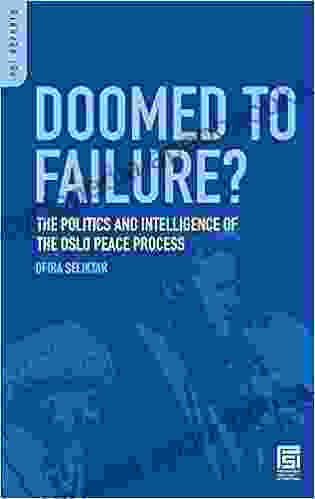Doomed To Failure: The Politics And Intelligence Of The Oslo Peace Process

The Oslo Peace Process was a series of negotiations between Israel and the Palestine Liberation Organization (PLO) that began in 1993 and resulted in the signing of the Oslo Accords in 1994. The Accords were intended to lead to a two-state solution to the Israeli-Palestinian conflict, but they ultimately failed, and the conflict continues to this day.
4 out of 5
There are many reasons for the failure of the Oslo Peace Process, but two of the most important are the political and intelligence dimensions. Politically, the process was doomed from the start because it was based on a flawed assumption that the two sides were equally committed to peace. In reality, the Israelis were much more interested in maintaining their control over the Occupied Territories than they were in reaching a fair and lasting peace with the Palestinians.
Intelligence also played a key role in the failure of the Oslo Peace Process. The Israelis and Palestinians had very different assessments of the threats they faced, and these different assessments led to a lack of trust and cooperation between the two sides. The Israelis saw the Palestinians as a major security threat, and they were unwilling to make any concessions that would weaken their security. The Palestinians, on the other hand, saw the Israelis as the main threat to their national aspirations, and they were unwilling to make any concessions that would jeopardize their goal of achieving an independent state.
The intelligence failures that contributed to the failure of the Oslo Peace Process are a reminder of the importance of accurate and timely intelligence in peace negotiations. When the two sides to a conflict have different assessments of the threats they face, it is very difficult to reach a mutually acceptable agreement.
The Oslo Peace Process is a tragic example of how political and intelligence failures can lead to the failure of peace negotiations. The lessons learned from this process should be kept in mind by future peacemakers.
The Political Dimension
The political dimension of the Oslo Peace Process was doomed to failure from the start because it was based on a flawed assumption that the two sides were equally committed to peace. In reality, the Israelis were much more interested in maintaining their control over the Occupied Territories than they were in reaching a fair and lasting peace with the Palestinians.
This was evident in the way that the Israelis negotiated the Oslo Accords. They insisted on maintaining control over all of the major security issues, including bFree Downloads, water, and airspace. They also refused to recognize the PLO as the legitimate representative of the Palestinian people, and they continued to build settlements in the Occupied Territories.
The Palestinians, for their part, were desperate for peace, but they were also unwilling to give up their legitimate rights. They wanted to achieve a just and lasting peace that would give them an independent state of their own. They were also unwilling to accept the Israeli occupation of their land.
The result was a stalemate. The Israelis were unwilling to make the concessions necessary for peace, and the Palestinians were unwilling to accept anything less than a just and lasting peace. This stalemate ultimately led to the failure of the Oslo Peace Process.
The Intelligence Dimension
Intelligence also played a key role in the failure of the Oslo Peace Process. The Israelis and Palestinians had very different assessments of the threats they faced, and these different assessments led to a lack of trust and cooperation between the two sides.
The Israelis saw the Palestinians as a major security threat. They believed that the Palestinians were intent on destroying Israel, and they were unwilling to make any concessions that would weaken their security.
The Palestinians, on the other hand, saw the Israelis as the main threat to their national aspirations. They believed that the Israelis were intent on preventing them from achieving an independent state, and they were unwilling to make any concessions that would jeopardize their goal.
These different assessments of the threats faced by the two sides led to a lack of trust and cooperation between them. The Israelis were unwilling to share intelligence with the Palestinians, and the Palestinians were unwilling to trust the Israelis with their security.
This lack of trust and cooperation made it very difficult to reach a mutually acceptable agreement. The two sides were unable to agree on the terms of a peace treaty, and the Oslo Peace Process ultimately failed.
Lessons Learned
The Oslo Peace Process is a tragic example of how political and intelligence failures can lead to the failure of peace negotiations. The lessons learned from this process should be kept in mind by future peacemakers.
First, it is important to ensure that both sides to a conflict are equally committed to peace. If one side is more interested in maintaining its control over the other side than it is in reaching a fair and lasting peace, then the negotiations are doomed to failure.
Second, it is important to have accurate and timely intelligence about the threats that each side faces. If the two sides have different assessments of the threats they face, then it will be very difficult to reach a mutually acceptable agreement.
Third, it is important to build trust and cooperation between the two sides. This can be done by sharing intelligence, by working together on common projects, and by building personal relationships.
The Oslo Peace Process is a reminder of the importance of political and intelligence dimensions in peace negotiations. By learning from the mistakes of the past, we can increase the chances of success in future peace negotiations.
4 out of 5
Do you want to contribute by writing guest posts on this blog?
Please contact us and send us a resume of previous articles that you have written.
 Book
Book Novel
Novel Page
Page Chapter
Chapter Text
Text Story
Story Genre
Genre Reader
Reader Library
Library Paperback
Paperback E-book
E-book Magazine
Magazine Newspaper
Newspaper Paragraph
Paragraph Sentence
Sentence Bookmark
Bookmark Shelf
Shelf Glossary
Glossary Bibliography
Bibliography Foreword
Foreword Preface
Preface Synopsis
Synopsis Annotation
Annotation Footnote
Footnote Manuscript
Manuscript Scroll
Scroll Codex
Codex Tome
Tome Bestseller
Bestseller Classics
Classics Library card
Library card Narrative
Narrative Biography
Biography Autobiography
Autobiography Memoir
Memoir Reference
Reference Encyclopedia
Encyclopedia Harold Ivan Smith
Harold Ivan Smith A S Kline
A S Kline Dayne Edmondson
Dayne Edmondson Charles Kane
Charles Kane Greg Pond
Greg Pond Carrie Magillen
Carrie Magillen William A Owings
William A Owings Ronald E Kearns
Ronald E Kearns Richard Wilbur
Richard Wilbur Tony Sclafani
Tony Sclafani Paul R Gregory
Paul R Gregory A Arturo Leis
A Arturo Leis Jack Flash
Jack Flash Charles A Stevenson
Charles A Stevenson Arthur Kroker
Arthur Kroker 6th Edition Kindle Edition
6th Edition Kindle Edition Gretta Curran Browne
Gretta Curran Browne C L Murray
C L Murray J Allen Eckert
J Allen Eckert Joseph Sobran
Joseph Sobran
Light bulbAdvertise smarter! Our strategic ad space ensures maximum exposure. Reserve your spot today!

 Simon MitchellResponding to the Needs of All Learners: A Transformative Guide for Inclusive...
Simon MitchellResponding to the Needs of All Learners: A Transformative Guide for Inclusive...
 Shannon SimmonsWilliam Sweetland of Bath: A Journey through Music in Nineteenth-Century...
Shannon SimmonsWilliam Sweetland of Bath: A Journey through Music in Nineteenth-Century...
 Allen GinsbergUnveiling the Shadows: Gridlock Labor Migration and Human Trafficking in...
Allen GinsbergUnveiling the Shadows: Gridlock Labor Migration and Human Trafficking in...
 Ryūnosuke AkutagawaUnlocking the Secrets of Heart Disease: A Comprehensive Guide with Textbook...
Ryūnosuke AkutagawaUnlocking the Secrets of Heart Disease: A Comprehensive Guide with Textbook... Bob CooperFollow ·2.4k
Bob CooperFollow ·2.4k Edgar Allan PoeFollow ·13.7k
Edgar Allan PoeFollow ·13.7k Ricky BellFollow ·18.5k
Ricky BellFollow ·18.5k Liam WardFollow ·15.9k
Liam WardFollow ·15.9k Derek CookFollow ·7.8k
Derek CookFollow ·7.8k Fernando PessoaFollow ·18.5k
Fernando PessoaFollow ·18.5k Yasushi InoueFollow ·10.3k
Yasushi InoueFollow ·10.3k Samuel Taylor ColeridgeFollow ·8.7k
Samuel Taylor ColeridgeFollow ·8.7k

 Jacob Hayes
Jacob HayesUnlock the Power of Microsoft Word: A Comprehensive Guide...
Microsoft Word is a widely used word...

 Hunter Mitchell
Hunter MitchellAndrea Carter and the Price of Truth: A Thrilling...
Get ready for an unforgettable...

 Ivan Turner
Ivan TurnerTrading Jeff and His Dog: An Unforgettable Adventure of...
Get ready for an emotional rollercoaster...

 Langston Hughes
Langston HughesGo Viral TikTok: The Ultimate Guide to Gaining 100K...
TikTok has emerged as a social...

 Ibrahim Blair
Ibrahim BlairUnveil the Enchanting Realm of Short Fiction: Dive into...
Delve into a Literary Tapestry of...

 Tennessee Williams
Tennessee WilliamsUnveil the Enchanting World of Elizabeth Barrett...
A Poetic Tapestry of Love, Loss, and...
4 out of 5




